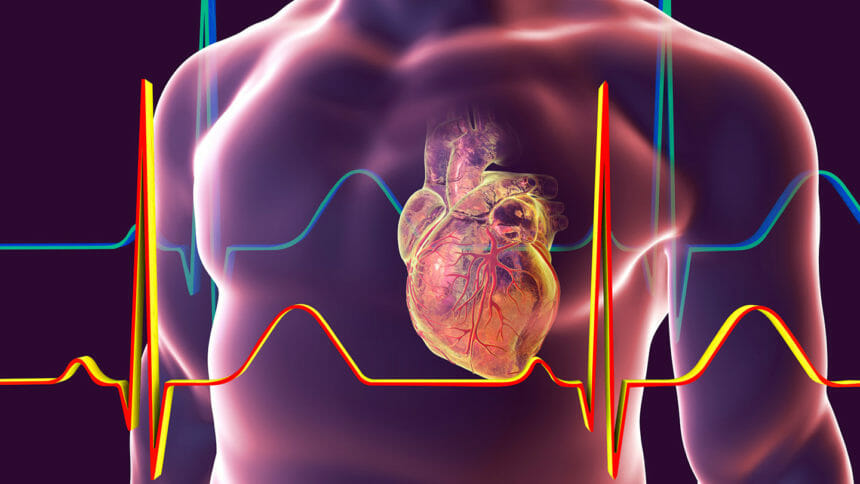
Cardiac symptoms may linger for at least a year in some patients who recover from mild cases of COVID-19.
That’s according to a new study of 349 patients with COVID-19 and no prior cardiac disease or notable comorbidities. Study participants underwent serial cardiac assessments, including measurement of blood biomarkers for heart ailments and magnetic resonance imaging. At 109 days, fully 73% of the patients reported cardiac symptoms. These included labored breathing on exertion (62%), palpitations, atypical chest pain and syncope.
Patients who reported cardiac symptoms had higher heart rates and signs of cardiac inflammation on their scans when compared to their asymptomatic peers. There were rarely signs of structural heart disease or high levels of biomarkers that would signal cardiac injury or dysfunction in the symptomatic group, however.
At a 329-day follow-up, 57% of the participants continued to have cardiac symptoms. This included a high rate of diffuse myocardial edema, or fluid buildup in the heart, that was more pronounced in the participants who were still symptomatic when compared to patients who had improved.
Signs of inflammation
Two factors predicted cardiac symptoms at follow-up: female gender and widespread heart muscle involvement, reported Valentina O. Puntmann, MD, PhD., of Frankfurt University Hospital in Germany, and colleagues.
“Ongoing inflammatory cardiac involvement may, at least in part, explain the lingering cardiac symptoms in previously well individuals with mild initial COVID-19 illness,” they concluded.
Symptoms after COVID-19 infection are common and often include cardiac symptoms, the authors added. In one study, 6.1% of patients with persistent symptoms had cardiac involvement. In another, 72% reported continuing symptoms with labored breathing being the main complaint.
The study was published in Nature Medicine.
Related articles:
COVID-19 has long-term cardiovascular effects, ‘stunning’ study results reveal
One more reason to avoid virus: COVID, cardiac arrests spike together




